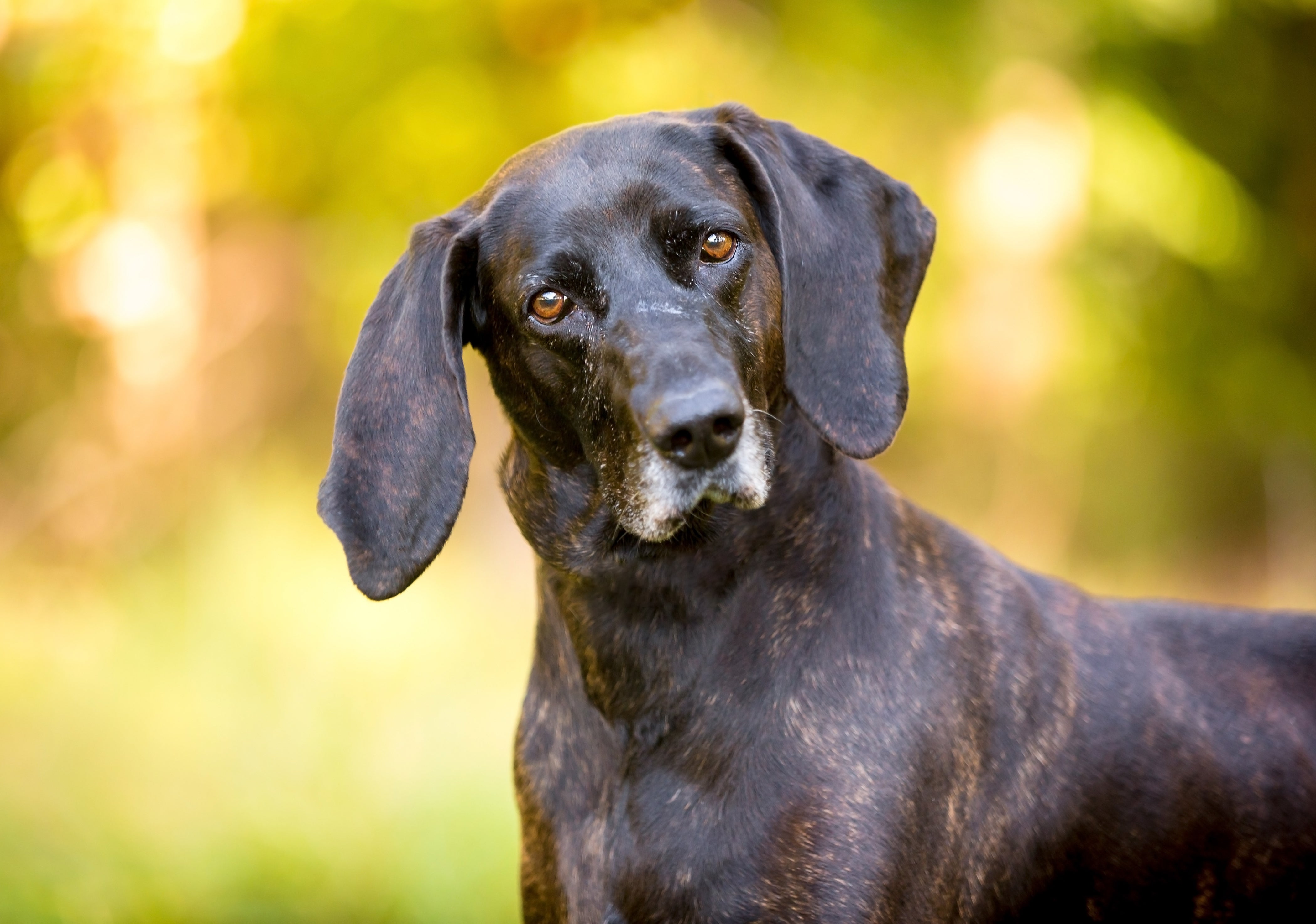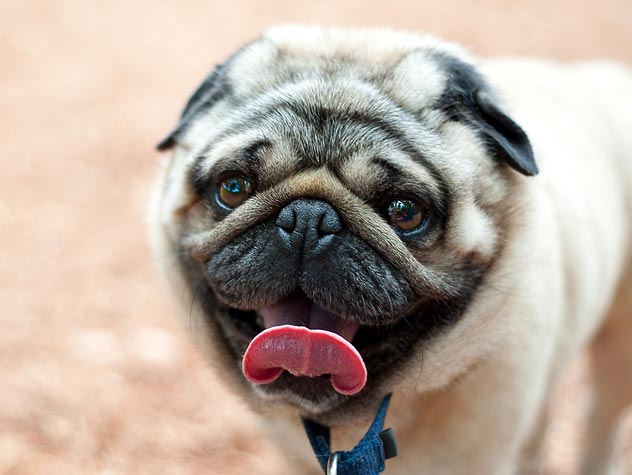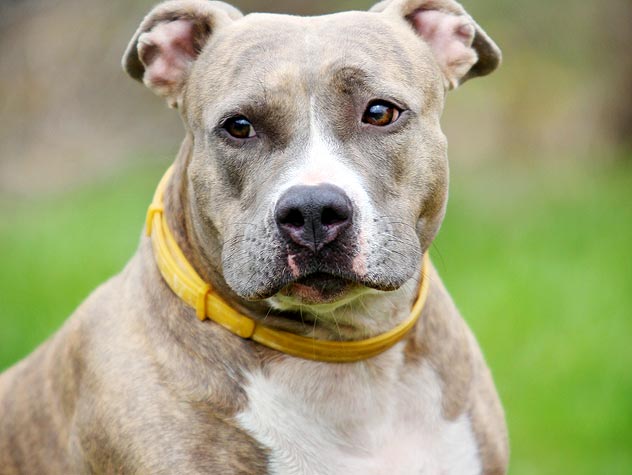Plott Hound
The official state dog of North Carolina, the Plott Hound dog is descended from German hounds. They are straightforward dogs who love nothing more than chasing a scent. Their bodies are agile, powerful, and have great endurance. The Plott Hound’s coat is medium length and fine or medium coarse in texture and relatively low maintenance to maintain. They are confident and courageous dogs that aren’t afraid to have their voices heard. Gentle and calm at home, they are fearless when the occasion calls for it.
Breed characteristics carousel
Learn More
Need to Know
- Extra training required
- Have strong hound-like instincts
- Good for experienced dog owners
- Generally healthy breed
- Enjoys vigorous walks
- Medium dog
- Some drool
- Requires grooming
- Generally friendly with other dogs
- Barks and alerts to visitors/anything unusual
- Chatty and vocal dog
- Gets along with other pets with training
- May need additional supervision to live with children
- Needs a large yard, preferably in suburban or rural areas
- AKC Registered Breed

Personality
The Plott Hound has all the characteristics of a scent hound—determined, unrelenting, and deaf to your commands when they find something they want to follow. They are loyal and eager to please dogs that warm up quickly to strangers. They aren’t as friendly with other dogs as some hound breeds and can become protective easily, defaulting to their instincts.
While the Plott Hound is the official state dog of North Carolina, its roots go back to Germany in the 1700s. A German immigrant named Johannes Georg Plott brought five German hounds to the Great Smoky Mountains when he settled there in 1750. The Plott family bred these brindle dogs for seven generations. The dog evolved, but all Plott Hounds can be traced back to the Plott family’s original dogs.
Previous hound experience is ideal when it comes to owning a Plott Hound. They are active, energetic, and agile dogs that require consistent training and leadership. If you are outdoorsy, fit, and high-energy, they might be a good companion dog for you.
Athletic with stamina to spare, the Plott Hound dog breed requires lots of exercise. They are powerful and determined dogs when on a scent. Daily routines should include scent work, long walks, free running, and mental exercise through puzzles, games, training, and more.
Plott Hounds are country dogs at heart, even though they are highly adaptable. They’ll do best in a house with a yard and ample space to roam and romp.
The brindle, black, or saddle coat of the Plott Hound dog is glossy and low-maintenance. Weekly brushing with a hound glove or soft-bristle brush to remove dirt and loose hair will keep their coats in tip-top shape. Baths should be as needed whenever “eau de dog” arises. Their ears should be regularly inspected and cleaned.
Plott Hounds are smart and confident dogs, especially when socialized early and consistently. They can be standoffish to others given how focused they are. They generally have a lot of energy, which means that plenty of physical and mental stimulation is needed to turn them into well-mannered companions. Consistent training with positive reinforcement is important. They are vocal dogs and aren’t afraid to voice their opinions
Plott Hounds can make good family dogs as they are gentle and loyal, and they generally do well with children. It’s essential to give them ongoing and early socialization and training to help them overcome their default setting, which is to protect those they love. Proper introductions will encourage them to be friendly dogs.
The cost of a Plott Hound from a breeder is significantly more than the cost of adopting one from a local shelter or rescue. The adoption fee usually covers additional items such as spaying or neutering, vaccines, and microchipping.

Learn more about feeding and caring for your Plott Hound on Purina.
Did You Know?
- The Plott Hound is the state dog of North Carolina.
- All Plott Hounds can be traced back to the original ones brought to the Great Smoky Mountains in the 1700s.


